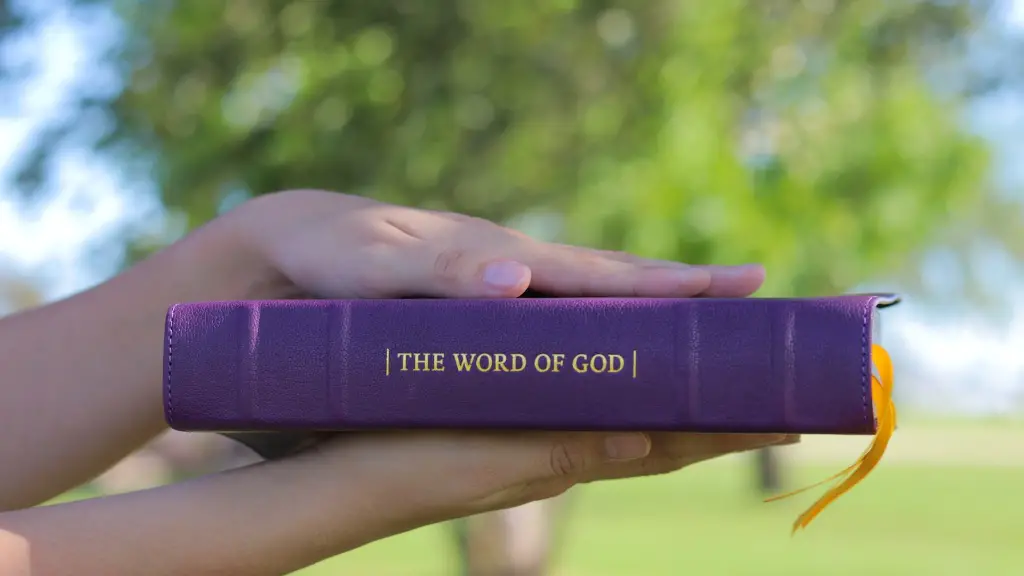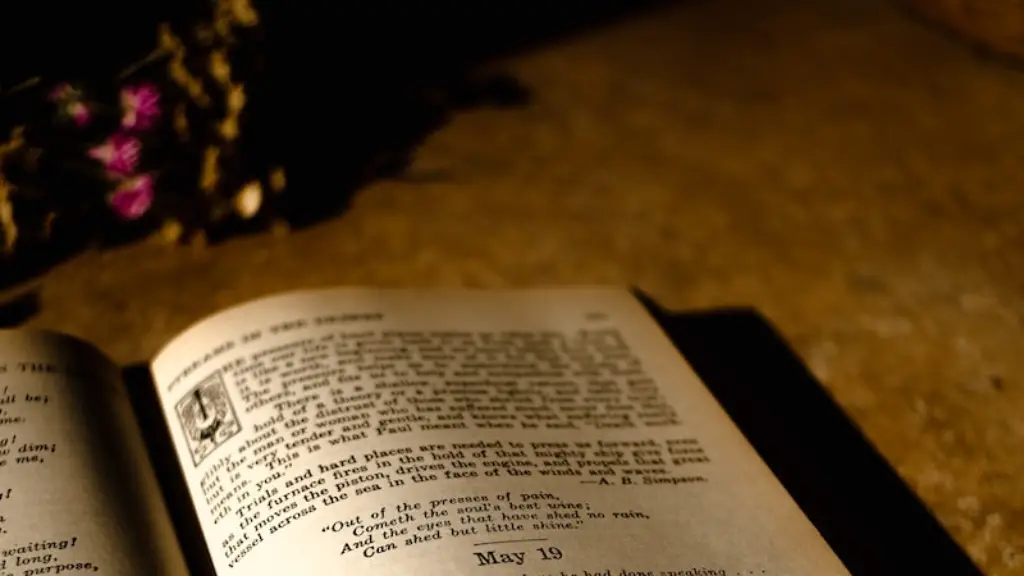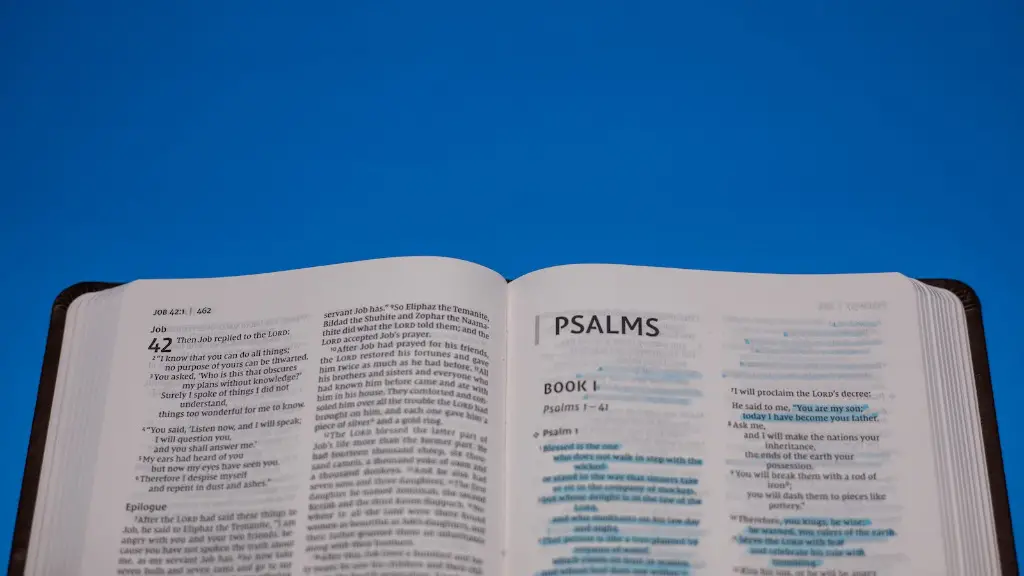Halloween is a popular festival celebrated on October 31st in several countries around the world. Even though it has become commercialized in present times, its traditional practice dates back centuries. The festival is believed to have its origins in the ancient Celtic celebration of the harvest, Samhain. But what the Bible says about Halloween?
The Bible does not specify the exact origin of Halloween and does not provide a clear picture about its celebration. Some experts interpret certain passages in the Bible in connection to Halloween, but there is no clear evidence that it originated as a religious festival. In fact, some experts argue that although many of the traditions associated with Halloween have pagan roots, some of them were also adopted by the early Christian churches. But no matter from where it originates, the Bible does not actually encourage the practice of celebrating Halloween.
The Bible never mentions Halloween specifically, but there are a few verses that could be interpreted in connection to the holiday. In Deuteronomy 18:10-12, God warns the people against the practice of divination or seeking help from the dead. The passage is a clear condemnation against the belief of consulting the dead, which is a custom commonly associated with Halloween. Similarly, in Leviticus 19:31, God instructs the people not to turn towards mediums or necromancers, warning them that they will be defiled if they do. This verse clearly states that it is against God’s will to practice any sort of communication with the dead, a custom that is often associated with Halloween.
Apart from this, the Bible does not offer any clear guidance regarding the celebration of Halloween. It does not mention anything about costumes, treats, or other traditions of the modern holiday that are often enjoyed by children and adults. But in spite of this, there are several passages in the Bible that talk against the practice of celebrating Halloween. For instance, Romans 12:2 clearly states that Christians should not be conformed to the world, but should be transformed by the renewing of their minds. This verse suggests that Christians should avoid activities and customs associated with Halloween that could influence their behavior in a negative manner.
Halloween is not mentioned in the Bible and therefore, it is difficult to draw a clear line between what is acceptable and what is not in regards to the holiday. The Bible only offers advice against the practice of consulting with the dead and adopting the customs of the world. While this does not provide a definitive answer about the celebration of Halloween, it does provide some useful information to consider when deciding what to do on the holiday.
What the Bible Says About Celebrating Halloween
The Bible does not provide an explicit answer to the question of whether Christians should celebrate Halloween. However, it does contain a few passages that could provide insight into the issue. One of the most important verses is found in 1 Corinthians 10:27-29, which states that “whatever you do, do not give anyone a cause to stumble.” This suggests that Christians should be careful not to partake in any activities that could potentially lead to a downfall or stumble in the faith. It is important to consider this verse when thinking about celebrating Halloween. While it is important to have fun and enjoy the holiday, Christians should also be mindful of how much enjoyment is taken from the day and should be careful not to go too far.
Moreover, Colossians 3:17 warns against imitating worldly patterns, reminding us that our actions should reflect the good nature of Jesus. This verse encourages Christians to remain true to Christ’s teachings and to avoid activities and practices associated with the world. When it comes to Halloween, it is important that Christians take steps to ensure that their actions do not contradict the will of God.
Finally, 1 Thessalonians 5:22 provides further insight into the issue of celebrating Halloween. This verse encourages us to abstain from all forms of evil, both physical and spiritual. While it is difficult to draw a line between what is or is not evil when considering the celebration of Halloween, this provides a helpful guide to keep in mind. Christians should be careful not to participate in any activities that could be considered immoral or contrary to the teachings of God.
Other Considerations
In addition to the biblical teachings, there are several other factors to consider when deciding if one should celebrate Halloween. For instance, it is important to consider the activity options available. If there are activities that could potentially lead to spiritual harm, such as séances or witch’s spells, then it is best to avoid them. Similarly, it is important to consider the costumes being worn and the activities associated with Halloween celebrations. Christians should be careful to avoid overindulgence and harmless activities that could be interpreted as evil, such as spending time visiting a graveyard.
Furthermore, it is important to consider the mission of the local church, as some churches may have specific guidelines forbidding the celebration of Halloween. In these circumstances, it is important to consider the teachings of the church and to seek advice from spiritual leaders.
Lastly, it is important to consider the impact of the celebration on broader society. While it is possible to participate in trick or treating without compromising the gospel, some activities and costumes may be perceived as inappropriate and offensive by others. Therefore, it is important to consider the potential social implications of participating in Halloween activities and to avoid any activities that could be seen as ungodly.
The Effects Of Celebrating Halloween
It is important to consider the potential implications of participating in Halloween activities beyond the spiritual side of things. Practicing any religion or partaking in any activity involves risk and Satan knows this, which is why he positions Halloween as an opportunity to bring spiritual darkness and to lead people away from God.
Futhermore, it is also important to consider the physical implications of celebrating Halloween. By participating in the festival, children and adults alike can be exposed to physical dangers such as fires or accidents. Additionally, unhealthy eating habits are often associated with the holiday, such as overeating candy or other types of snacks.
Moreover, participating in Halloween activities can also be a cause of moral confusion and a negative influence on young people. At the same time, it can also lead to vanity and excess, as the emphasis is more often on consumerism and frivolity. Finally, the celebration of Halloween can lead to spiritual blindness, as it promotes practices and activities that go against God’s will.
Alternatives To Celebrating Halloween
In light of the potential risks associated with celebrating Halloween, there are several other activities that Christians can participate in to celebrate the season. For instance, some churches may host special events that provide an opportunity to serve others or to use the day to spread the gospel. Additionally, some churches have taken to focusing on the celebration of All Saints Day, which provides an opportunity to honor the saints and to celebrate the Christian faith.
Moreover, some people may choose to participate in other traditions associated with the harvest season, such as baking, or they may opt to hold a pumpkin-carving competition or a related activity. Additionally, some churches may encourage their members to celebrate the day as a “Harvest Festival”, which involves decorating with pumpkins, corn stalks, and other decorations of the season.
Finally, some people may choose to take part in activities such as community service or visiting those in need. By doing this, individuals can reflect on the significance of the season and make an effort to do what God has called us to do – to love one another.
Conclusion
While the Bible does not provide an explicit answer regarding whether Christians should celebrate Halloween, it does offer some insight into the issue. The Bible encourages us to abstain from evil, be careful not to stumble, and to avoid costumes and activities associated with the world that could lead us away from the gospel. Furthermore, it is important to consider the potential physical, social, and spiritual implications of the holiday and to explore alternatives that offer an opportunity to celebrate in ways that please God.




